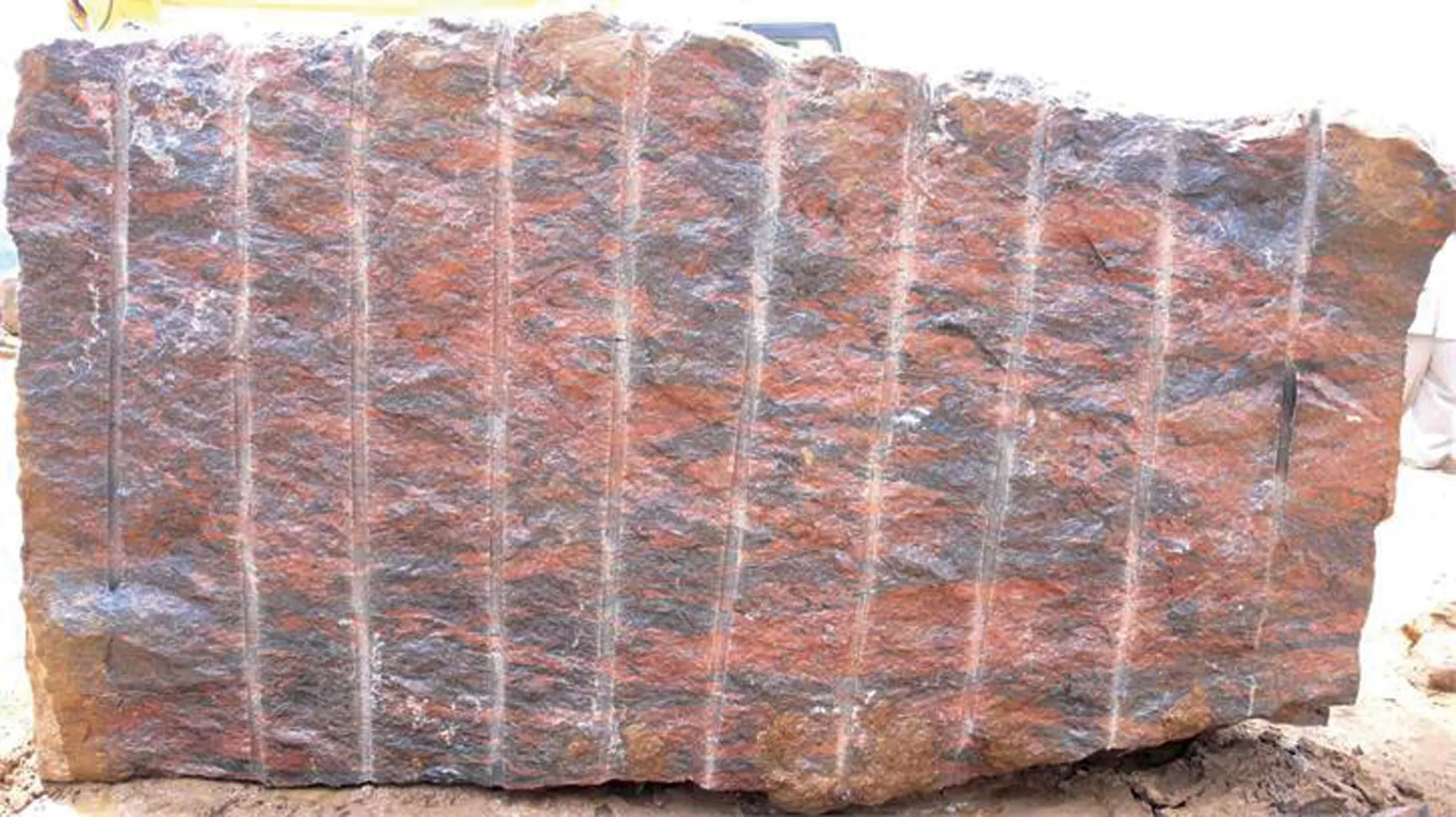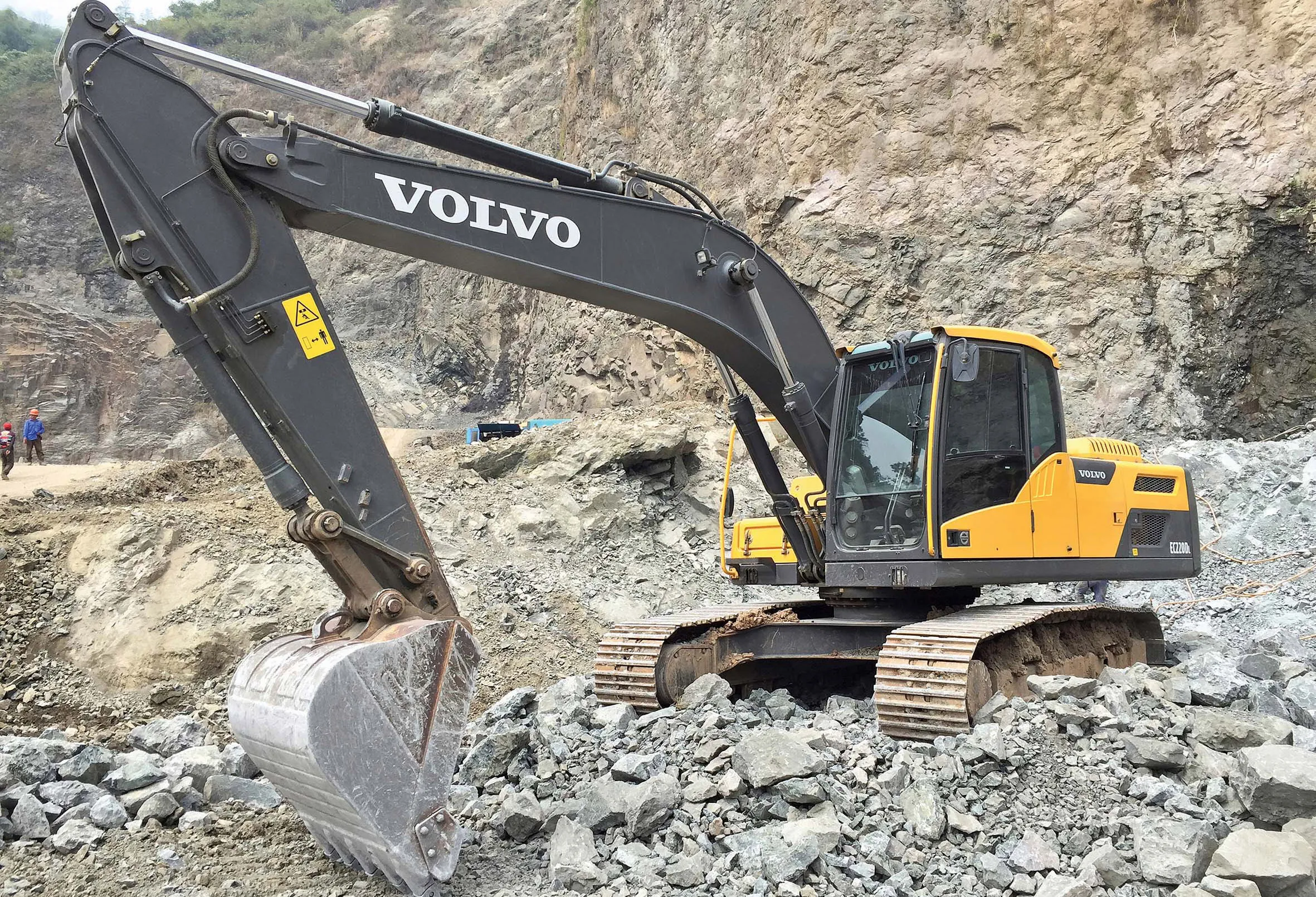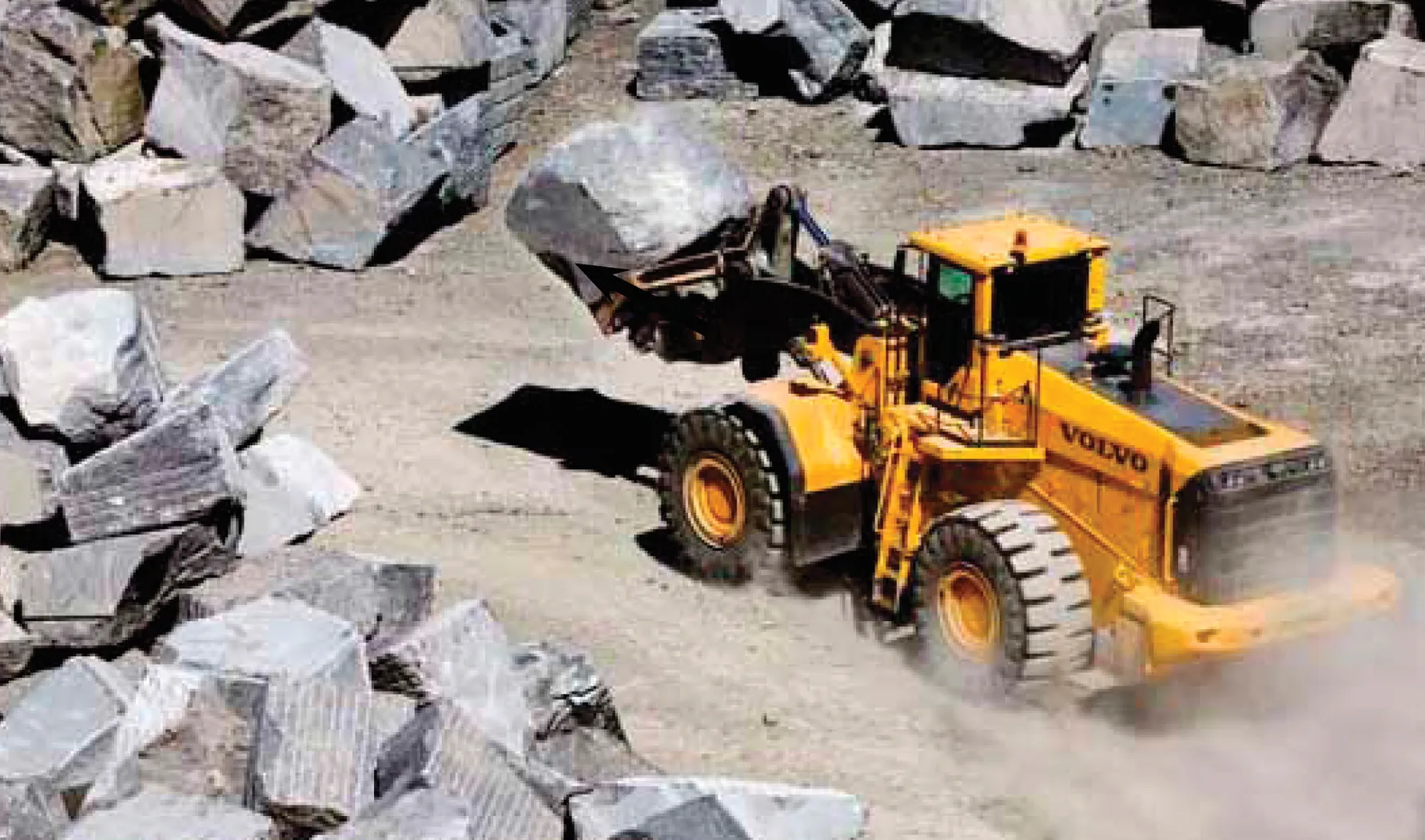Indian extraction company SVA Blue Metals is producing millions of tonnes of aggregates/year, using a fleet of Volvo excavators SVA Blue Metals was founded three decades ago by the father of present owner R Ramakrishnan, who handed the business over to his son 15 years ago. The company runs a facility in Karanampettai village close to the bustling industrial city of Coimbatore, around 471km from Chennai, the capital of Tamil Nadu state, and has a license to extract from a portion of the site – with a view
March 28, 2014
Read time: 3 mins

Indian extraction company SVA Blue Metals is producing millions of tonnes of aggregates/year, using a fleet of 2394 Volvo excavators
SVA Blue Metals was founded three decades ago by the father of present owner R Ramakrishnan, who handed the business over to his son 15 years ago.
The company runs a facility in Karanampettai village close to the bustling industrial city of Coimbatore, around 471km from Chennai, the capital of Tamil Nadu state, and has a license to extract from a portion of the site – with a view to expand capacity in the future, depending on market conditions and demand.
The company excavates large chunks of blue metal rock, also rather surprisingly known as jelly, which is a coarse particulate material used in the construction industry. This is among some of the most popular materials for extraction in the world and is indispensable to road building because of its predictable, uniformed properties and its value as a low-cost reinforcement material that binds well with cement to form concrete.
It has been used for several decades to manufacture concrete but is also used in road base, railway ballast and many other civil construction and commercial building materials. The by-product is also used as a substitute for sand.
“You will find our aggregate used in numerous construction applications,” said Ramakrishnan. “Because the ore extract is crushed and mixed with other materials it doesn’t keep its colour but it’s in high demand because of its versatility. It strengthens metals’ molecular structure for construction use.”
Assisting SVA Blue Metals in its operations are five Volvo machines including, two Volvo EC210 BLC, two EC210 B-Prime and one EC290 B-Prime excavators. They excavate the blue metal rock, which is then transported from the quarry and sent to major customers in India. The company bought its first Volvo excavator in 2007 and plans to extend its Volvo fleet. The machines work 12 hour shifts, 25 days/month for 10 months/year.
“The business grows by the day, so it makes sense to invest in Volvo machines in order to meet the ever-growing demand,” said Ramakrishnan. “The machines are extremely productive and fuel efficient, which is why we use this quality brand of equipment. I also believe that Volvo excavators have a longer life cycle than other brands of machinery, meaning less machine downtime and more value for money.”
The Volvo EC210B-Prime excavator has an 110kW low-emission, turbocharged diesel engine with water cooling, direct injection and after-cooler system, especially developed for excavator use. The machine is said to be suitable for any job site, contributing to good fuel economy, low sound level, less wear and a longer life. The automatic idling system also reduces the engine speed to idle when levers and pedals are not being used.
SVA is also said to be pleased with the service it gets from Volvo CE’s local dealer, Advanced Construction Technologies. The dealership has been running for 25 years and is a leading provider of construction solutions and equipment in India.
Ramakrishnan is the president of the Karanampettai Blue Metal Quarry Owners Association, which helps to promote the blue metal industry.
SVA Blue Metals was founded three decades ago by the father of present owner R Ramakrishnan, who handed the business over to his son 15 years ago.
The company runs a facility in Karanampettai village close to the bustling industrial city of Coimbatore, around 471km from Chennai, the capital of Tamil Nadu state, and has a license to extract from a portion of the site – with a view to expand capacity in the future, depending on market conditions and demand.
The company excavates large chunks of blue metal rock, also rather surprisingly known as jelly, which is a coarse particulate material used in the construction industry. This is among some of the most popular materials for extraction in the world and is indispensable to road building because of its predictable, uniformed properties and its value as a low-cost reinforcement material that binds well with cement to form concrete.
It has been used for several decades to manufacture concrete but is also used in road base, railway ballast and many other civil construction and commercial building materials. The by-product is also used as a substitute for sand.
“You will find our aggregate used in numerous construction applications,” said Ramakrishnan. “Because the ore extract is crushed and mixed with other materials it doesn’t keep its colour but it’s in high demand because of its versatility. It strengthens metals’ molecular structure for construction use.”
Assisting SVA Blue Metals in its operations are five Volvo machines including, two Volvo EC210 BLC, two EC210 B-Prime and one EC290 B-Prime excavators. They excavate the blue metal rock, which is then transported from the quarry and sent to major customers in India. The company bought its first Volvo excavator in 2007 and plans to extend its Volvo fleet. The machines work 12 hour shifts, 25 days/month for 10 months/year.
“The business grows by the day, so it makes sense to invest in Volvo machines in order to meet the ever-growing demand,” said Ramakrishnan. “The machines are extremely productive and fuel efficient, which is why we use this quality brand of equipment. I also believe that Volvo excavators have a longer life cycle than other brands of machinery, meaning less machine downtime and more value for money.”
The Volvo EC210B-Prime excavator has an 110kW low-emission, turbocharged diesel engine with water cooling, direct injection and after-cooler system, especially developed for excavator use. The machine is said to be suitable for any job site, contributing to good fuel economy, low sound level, less wear and a longer life. The automatic idling system also reduces the engine speed to idle when levers and pedals are not being used.
SVA is also said to be pleased with the service it gets from Volvo CE’s local dealer, Advanced Construction Technologies. The dealership has been running for 25 years and is a leading provider of construction solutions and equipment in India.
Ramakrishnan is the president of the Karanampettai Blue Metal Quarry Owners Association, which helps to promote the blue metal industry.








